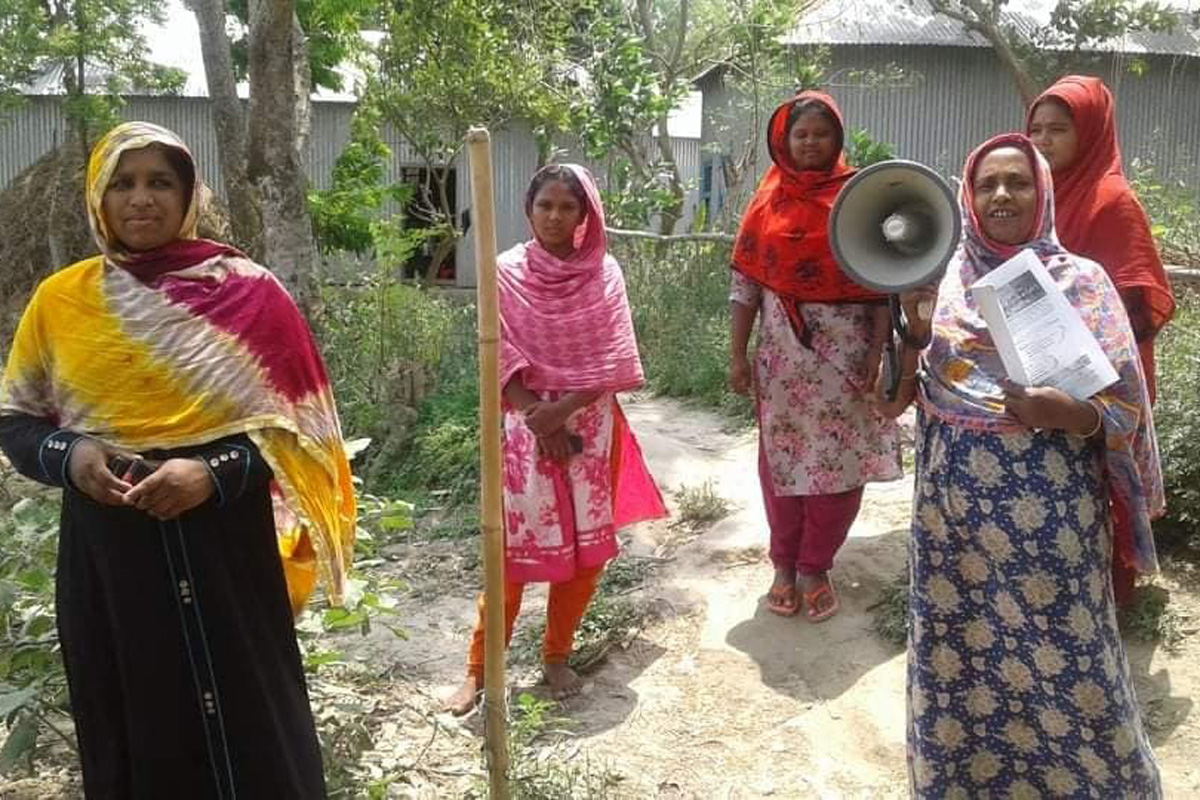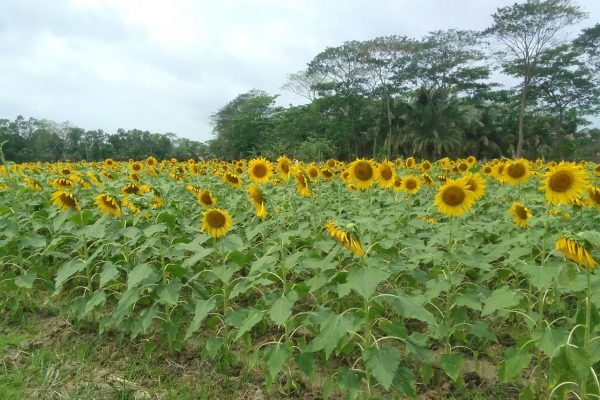Reading Time: 2 minutes
The number of COVID-19 cases in Bangladesh is rapidly approaching 3,000. People in already vulnerable situations are suffering the most as economic shutdown continues. BRAC has provided a total 186,074 families with cash support to date and continues to scale up activities.
Read the latest on the situation in Bangladesh and BRAC’s response.
Dear colleagues, partners and friends,
Bangladesh is rapidly approaching 3,000 reported COVID-19 cases.
492 people have tested positive for COVID-19 in the last 24 hours, the highest number of cases detected in a day. Ten people have died in the 24 hours, raising the death toll to 101. There are now a total of 2,948 reported cases.
The rate of testing remains low, with 154 per million, yet it took only 40 days to identify over 2,000 cases. This is a significantly faster rate than many of the worst-hit countries. The majority of infected cases remain in Dhaka, followed now by Gazipur with the highest number of new cases.
The Government of Bangladesh is planning for a multi-sector initiative among NGOs and private sector partners to expand testing, and authorising private hospitals to treat COVID-19 patients.
12 COVID-19 testing kiosks are ready to operate in Dhaka and Narayanganj. These walk-in kiosks have been set up by BRAC in partnership with the government following the Kerala testing and tracing model.
Bangladesh is in the 25th day of economic shutdown. People have been instructed not to leave their homes from 6pm to 6am. However, large gatherings in markets and other public places are still regularly making headlines.

Ready-made garments workers belonging to 370 factories are still protesting for salaries. From a public health perspective, these workers are risking their lives. The local police chief of Gazipur expressed her anxiety about the safety standards of the factories operating in her district. In a laudable move, the government has launched a telemedicine service for workers to raise awareness of the virus and offer medical advice to those garments workers who might be in need.
Rice farmers in Bangladesh’s haor (wetlands) regions face the threat of flash floods as they begin work to harvest Boro rice, a special type of rice cultivation on residual or stored water in low-lying wetland regions. 20% of the country’s supply of rice is grown in these regions. The harvest, which will extend until the first week of May, is particularly at risk in Sylhet, Habiganj, Sunamganj and Moulvibazar.
The Prime Minister of Bangladesh has instructed the Ministry of Disaster Management and Relief (MoDMR) to coordinate with the government’s three hotline numbers to send aid to callers. Secretaries and senior officials have been assigned to oversee and coordinate the efforts to slow the spread in districts. The government has also asked district administrators outside Dhaka to acquire hotels or buildings for separate accommodation for doctors and nurses treating COVID-19 patients.
The transgender community is one of the most vulnerable communities in Bangladesh. A rapid assessment was conducted with 132 transgender learners and graduates of BRAC Skills Development Programme to understand the economic impact of COVID-19 on their livelihoods.
The economic shutdown has hit micro, medium and small enterprises particularly hard. A telephone survey with 184 enterprise owners (current and former participants of BRAC Skill Development Programme) was conducted to gain an understanding of the existing condition of the market in Bangladesh.
Working in close coordination with the government and community-level organisations, BRAC has provided a total 186,074 families with cash support of BDT 1,500 (USD 18).
Read the full report here.
Asif Saleh is the executive director of BRAC Bangladesh.





